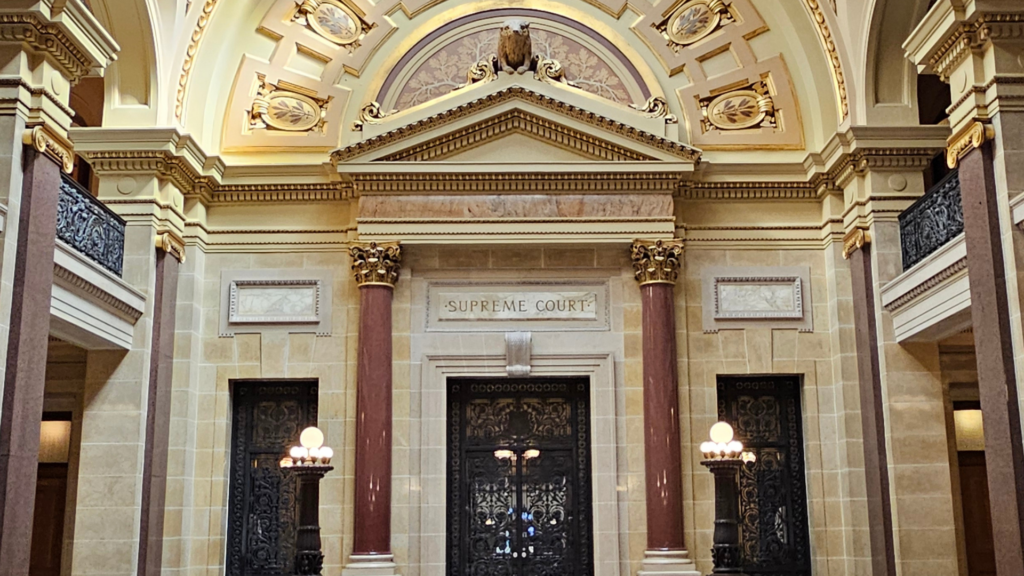Visit WisPolitics-State Affairs for premium content,
keyword notifications, bill tracking and more
Home » WisPolitics News » Unanimous Supreme Court rules Evers exceeded authority in partially vetoing reading bill

A unanimous Wisconsin Supreme Court today ruled Dem Gov. Tony Evers exceeded his authority by partially vetoing a bill in a literacy package even though it didn’t include an appropriation. The court also found the GOP-controlled Joint Finance Committee acted appropriately in refusing to release nearly $50 million from the Department of Instruction that was part of the overall package designed to b...